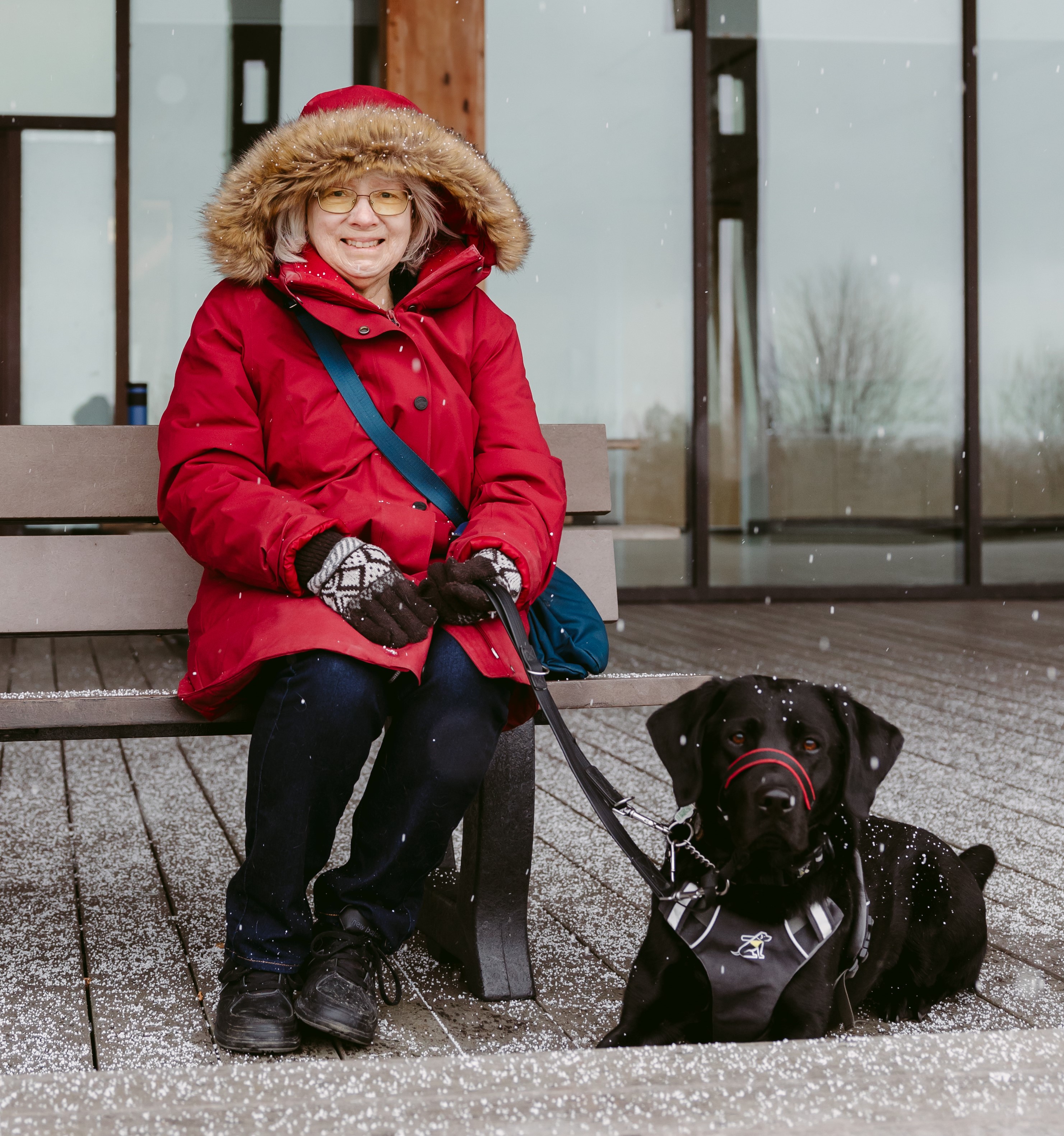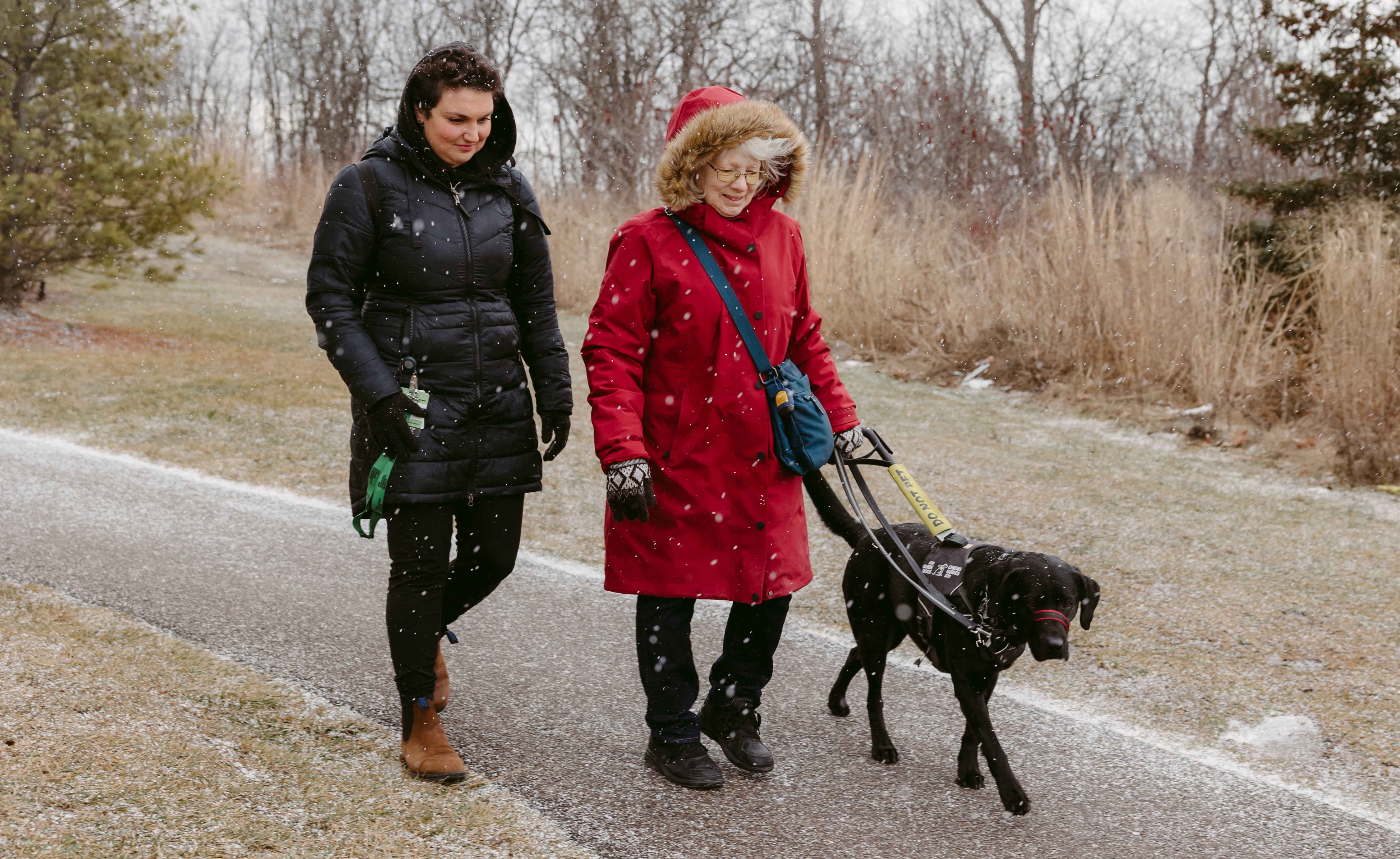Cheri was just six months old when she lost her hearing after a bout of scarlet fever. And she was around seven years old when she began having issues with her vision.
But with little support from her family or the numerous specialists she saw over the years, it wasn’t until she was in her 50s that Cheri was formally diagnosed with Usher syndrome – a rare genetic disease that can cause both hearing and sight loss.
“My mother never accepted my Deafblindness, and the specialists kept telling me there was nothing wrong with my eyes,” says Cheri. “It was such a relief to finally have an answer.”
 After her diagnosis, Cheri was referred to CNIB and began the process of applying for a guide dog. Struggling with both hearing loss and low vision, Cheri was beginning to worry about her safety while out and about and knew she needed support.
After her diagnosis, Cheri was referred to CNIB and began the process of applying for a guide dog. Struggling with both hearing loss and low vision, Cheri was beginning to worry about her safety while out and about and knew she needed support.
“I had started to use my white cane a lot more to get around, but I’m not always able to see or hear cars coming or passing,” she says. “There was one day when I was on the sidewalk and almost got hit by a car.”
The day Cheri met Sassy, a black Lab, she knew her life would change for the better.
“From the moment I met Sassy, I knew I made the right choice,” says Cheri. “She’s the perfect dog for me. As my eyes, she makes me feel protected and loved, and it comforts me to know she’ll keep me safe.”
Cheri and Sassy trained together at Cheri’s home for two weeks with the support of a Guide Dog Mobility Instructor from CNIB Guide Dogs, before settling into their new routine.
As a CNIB guide dog handler who is Deafblind, Cheri’s support team customized their training approach just for her, such as communicating in American Sign Language with the assistance from CNIB Deafblind Community Services. They also ensured Cheri was matched with a dog who is trained to respond primarily to hand signals.
“I feel much safer with her around,” says Cheri.
With Sassy in her life, Cheri has also found joy in connecting with other CNIB guide dog teams. Every year, she and Sassy travel to CNIB Lake Joe for Guide Dogs AdvoCamp, a special weekend where working guide dog teams can get together, learn how to self-advocate, and have fun.
“I’m so grateful for these friendships – and for Sassy, who makes my dreams come true,” she says.
To read more about how CNIB Guide Dogs trains dogs for handlers who are Deafblind, check out our Q&A with Guide Dog Mobility Instructor Chelsea Magee.
